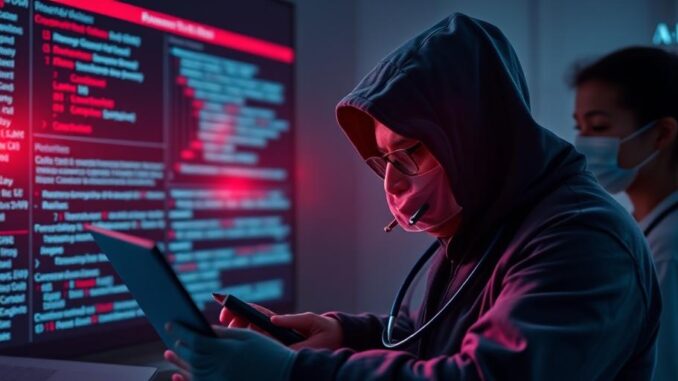
Summary
Kettering Health, a large healthcare system in Ohio, suffered a ransomware attack that caused a system-wide outage, disrupting patient care and leading to the postponement of elective surgeries. The attackers demanded a ransom and threatened to leak stolen data. Kettering Health is working to restore systems and has warned patients about scam calls seeking payments.
Explore the data solution with built-in protection against ransomware TrueNAS.
** Main Story**
Alright, let’s talk about the Kettering Health ransomware attack. It’s a mess, plain and simple. Imagine waking up to find your entire healthcare system, a major player in western Ohio, crippled by a cyberattack. That’s exactly what happened to Kettering Health on Tuesday, May 20, 2025. The fallout? Massive disruption to operations and, more importantly, patient care.
I mean, think about it. Vital patient care systems, gone. Medical records, inaccessible. Elective surgeries, postponed indefinitely. Emergency rooms are still open, but ambulances are being diverted left and right. And some poor souls are having their diagnoses and treatments put on hold. It’s a nightmare scenario for everyone involved.
Patient Care Catastrophe
The ripple effects of this outage are far-reaching. The call center basically imploded, making it a Herculean task for patients to even reach the hospital. To make matters worse, some real lowlifes are preying on vulnerable patients, posing as Kettering Health reps and demanding payments over the phone. Can you believe it? Kettering Health has, thankfully, confirmed these scams and warned people that they never ask for payments this way.
From what I’m hearing, doctors are struggling to do their jobs. Access to medical records, a cornerstone of modern medicine, has been completely cut off, making diagnosis and treatment incredibly difficult. Prescription refills and medical imaging are also severely impacted. Some doctors are even sharing their personal cell numbers with patients just to stay connected due to the phone line chaos.
If you need a refill, patients have been told to bring their empty prescription bottles to their doctor’s office, which, while resourceful, it isn’t exactly ideal, is it?
Ransomware Revealed and Under Investigation
Initially, Kettering Health played it close to the vest, only admitting to a “cybersecurity incident resulting from unauthorized access.” However, news outlets quickly uncovered the truth: it was a ransomware attack. Apparently, the Interlock ransomware gang left a ransom note, threatening to leak sensitive data unless Kettering Health paid up. But publicly? Kettering Health hasn’t confirmed anything, including the specific nature of the attack or whether they’re even considering paying a ransom.
Road to Recovery and Community Support
As of today, May 25, 2025, the outage continues to drag on. Experts estimate a full recovery could take anywhere from 10 to 20 days. Kettering Health CEO Mike Gentry released a statement acknowledging the major disruption and expressing gratitude to partner hospitals for their support. He’s urging patients with appointments to show up unless they’ve been contacted to reschedule. The team there are working tirelessly to restore systems and have, at least, implemented alternative procedures to continue seeing patients where they can. I’m sure there’ll be a fair bit of overtime for those involved!
The Bigger Picture: Healthcare Under Siege
This incident shines a harsh light on the growing vulnerability of healthcare systems to ransomware attacks. I mean, why are hospitals such attractive targets? Simple: they hold incredibly sensitive data, and patient care is a matter of life and death. These attackers know they have leverage.
The Interlock gang, apparently responsible for this mess, is infamous for targeting healthcare organizations and using “double extortion” tactics. They encrypt the data, yes, but they also steal it and threaten to leak it online if they don’t get their payday. The potential exposure of patient data and the massive operational disruptions make these attacks especially devastating for healthcare providers and their communities.
While Kettering Health hasn’t yet confirmed that patient data was compromised, the risk is still very real, and it highlights the urgent need for better cybersecurity measures in the healthcare sector to prevent these attacks. It’s a wake-up call, isn’t it? We need to prioritize cybersecurity like never before to protect our healthcare systems and the patients they serve.


The diversion of ambulances highlights the immediate impact on emergency services. How are neighboring hospitals managing the increased load, and what protocols are in place for coordinating patient transfers and resource allocation during such crises?
That’s a crucial point! The coordination between hospitals is essential. I’ve heard some neighboring facilities have surge capacity plans, but the long-term effects on their resources and staff are a concern. Exploring how these protocols are developed and implemented could offer valuable insights. Thanks for bringing this up!
Editor: StorageTech.News
Thank you to our Sponsor Esdebe
The scams targeting patients are appalling. Beyond warnings, what proactive measures can healthcare providers implement to safeguard patients from such exploitation during and after cyberattacks? Perhaps a dedicated support line or identity protection services could be beneficial.
That’s a great point about proactive measures. A dedicated support line and identity protection services could definitely provide valuable support to patients during these crises. Perhaps a collaboration with cybersecurity firms to offer discounted services could be an option too? It’s vital to explore these avenues to protect our community.
Editor: StorageTech.News
Thank you to our Sponsor Esdebe
Given the estimate of 10-20 days for full recovery, what specific steps are being taken to ensure data integrity during the restoration process, and how will Kettering Health validate that no data corruption occurred?